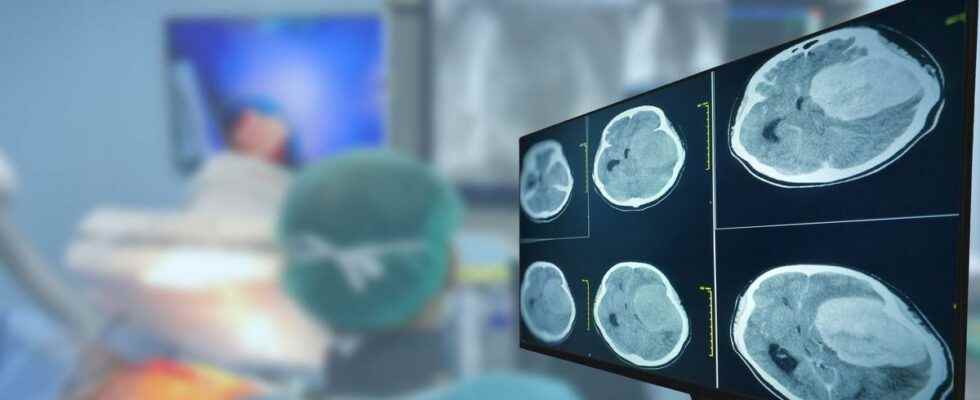Published on
Updated
Reading 3 mins.
A formidable brain cancer, glioblastoma is a pathology with a very limited life expectancy. A vaccine that targets cancer cells has prolonged the survival of patients from several months to several years. A real hope for all people affected by this tumor.
Are scientists at King’s College London shaking up the treatment options for glioblastoma? It would seem so.
Glioblastoma, an aggressive cancer
Affecting the brain cells, glioblastoma is an aggressive cancer, when it is classified as grade 3 or 4. The survival of affected patients is limited and there are currently only a few treatments that allow the tumor to regress. While American scientists have just developed a pump to deliver chemotherapy to the heart of the tumor, their English colleagues have been working for several years on the development of a vaccine.
Teaching the immune system to recognize cancer cells
In this study, the researchers did not use a generic vaccine, but a serum was developed specifically for each of the patients, by isolating specific immune cells, called dendritic cells, from their blood. In a second step, these cells were “equipped” with biomarkers from a sample of the patient’s tumor. They are shown how to “teach” the immune system to recognize brain cancer cells. So when the vaccine is injected, the patient’s immune system as a whole recognizes and targets these biomarkers.
Once developed, this vaccine was tested for eight years, on more than 300 patients from different countries, in the United Kingdom, at King’s College London but also in the United States, Canada and Germany, which all had was diagnosed with glioblastoma.
Vaccine studied against glioblastoma and its recurrences
All trial participants underwent the standard treatment for surgical glioblastoma followed by radiation therapy and chemotherapy. Two-thirds, or 232 patients, then received a regular injection of DCVax-L with additional chemotherapy (temozolomide). The remaining third, or 99 patients, received a placebo – an indistinguishable and harmless substitute for the vaccine – along with temozolomide. Neither the patients nor the clinicians involved knew which participants received the vaccine and which received the placebo. And for each patient whose tumor recurred during the trial, a new dose of vaccine was proposed, in order to study DCVax-L in the context of recurrent glioblastoma.
Greater patient survival, including in the event of a recurrence
The researchers observed a significant increase in the survival of newly diagnosed patients, which increased from 19.3 months (22.4 months after surgery) against 16.5 months for the control group.
For relapse patients, survival went from 7.8 months (control group) to 13.2 months on average. And for 13% of patients treated with the vaccine, their survival exceeded five years after diagnosis, compared to 5.7% for the control group. Unlike chemotherapy and radiation therapy, the vast majority of patients reported no side effects from the immunotherapy vaccine. Only five of the 331 patients who participated reported significant adverse effects, which may have been related to their treatment.
The opinion of Dr Rémi Bonetto, oncologist and radiotherapist at the Clairval private hospital in Marseille
“Glioblastoma is a pathology which remains incurable at present, with a very shortened survival. Faced with this disease, we have a rather poor therapeutic arsenal, due to the resistant nature of this tumour. In the years 2015 to 2020 , several immunotherapy trials have not shown a significant improvement in patient survival. It was then thought that it was not the weapon of choice against glioblastoma. But this study gives us an interesting signal again compared to its efficacy. This vaccine appears to improve the survival of patients, regardless of their MGMT profile (a marker for glioblastoma), without adding toxicity or significant side effects.”
